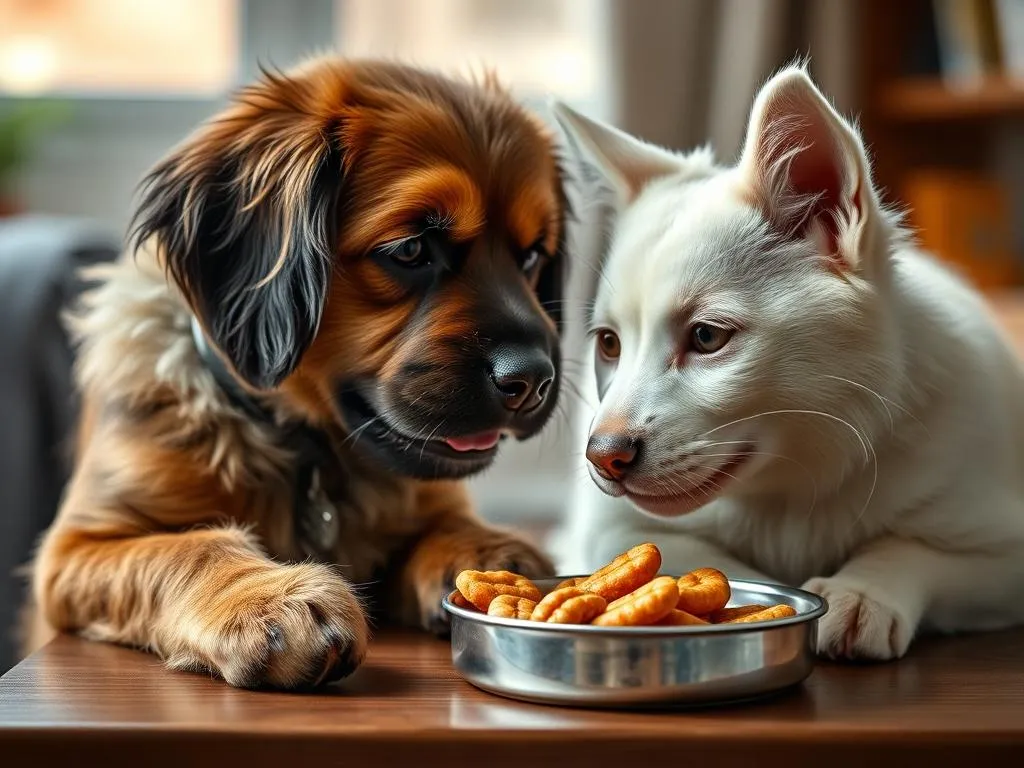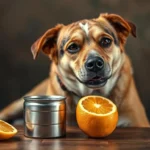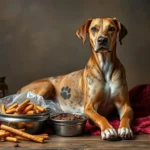
Introduction
A balanced diet is essential for the overall health and well-being of dogs. Just like humans, dogs require a variety of nutrients to thrive, and understanding their dietary needs is crucial for pet owners. Unfortunately, there are many misconceptions about what constitutes a proper diet for dogs, including the question of whether dogs can eat cat food.
This article will delve into the implications of dogs eating cat food, helping dog owners make informed decisions about their pets’ nutrition.
Understanding Dog Nutrition
Nutritional Requirements of Dogs
Dogs are omnivores, meaning they require a mix of nutrients found in both animal and plant sources. Here are the essential nutrients that should be included in a dog’s diet:
- Proteins: Vital for growth, maintenance, and repair of tissues.
- Fats: Provide energy and support cellular function.
- Carbohydrates: Offer a source of energy and aid digestive health.
- Vitamins: Essential for various metabolic processes.
- Minerals: Important for bone health, nerve function, and overall cellular health.
The recommended daily intake of these nutrients can vary based on the dog’s size, breed, age, and activity level. For instance, larger breeds often require more protein and fat compared to smaller breeds.
Differences Between Dog and Cat Nutrition
Cats have unique dietary needs that differ significantly from those of dogs. One key difference is that cats require taurine, an amino acid that is crucial for heart and eye health, which dogs can synthesize on their own. Additionally, cats need arachidonic acid, a fatty acid that dogs can produce from other sources.
These differences highlight why dogs cannot thrive on cat food. While both cats and dogs may enjoy the taste of the other’s food, their nutritional requirements are not interchangeable.
Can Dogs Eat Cat Food?
Immediate Effects of Eating Cat Food
If a dog occasionally consumes cat food, it may not have immediate severe consequences, but it can lead to some short-term side effects. Common issues include:
- Gastrointestinal upset: Dogs may experience vomiting or diarrhea after eating cat food due to its high protein and fat content.
- Taste preferences: Dogs often find cat food more palatable because it is richer in fats and proteins, which can lead to them seeking it out more.
Long-term Risks of Cat Food Consumption
Regularly feeding dogs cat food can lead to significant health risks. Some potential long-term consequences include:
- Nutritional deficiencies: Continuous consumption of cat food can result in imbalanced nutrition for dogs, leading to deficiencies in essential nutrients such as fiber and certain vitamins.
- Obesity: Cat food is generally higher in calories, which can contribute to weight gain in dogs if consumed frequently.
- Pancreatitis: The high fat content in cat food can trigger pancreatitis in dogs, a painful and potentially life-threatening condition.
- Organ damage: Over time, an imbalanced diet can strain organs, potentially leading to long-term health issues.
Situational Considerations
The context in which a dog consumes cat food matters. Occasional consumption may not be harmful, but regular access can lead to the risks outlined above. In multi-pet households, it’s common for dogs to sneak cat food, which can complicate feeding routines.
What to Do if Your Dog Eats Cat Food
Immediate Actions
If you discover that your dog has eaten cat food, consider these immediate steps:
- Assess the amount consumed: A small amount may not necessitate action, but a large quantity could require monitoring.
- Monitor for symptoms: Watch for signs of gastrointestinal distress, such as vomiting or diarrhea.
- When to contact a vet: If your dog shows severe symptoms or if you have concerns about the amount consumed, it’s best to consult a veterinarian.
Long-term Strategies
To prevent dogs from eating cat food in the future, consider these strategies:
- Secure cat food: Keep cat food in a location that is inaccessible to dogs, such as on high shelves or in cabinets.
- Training tips: Teach your dog commands such as “leave it” or “no” to discourage scavenging behavior.
Healthier Alternatives for Treating Dogs
Dog-Safe Treats and Foods
There are many dog-safe treats and foods that can serve as alternatives to cat food. Here are some ideas:
- Homemade treat recipes: Simple recipes can include peanut butter, pumpkin, and oats, which are safe and nutritious for dogs.
- Recommended commercial treats: Look for treats specifically formulated for dogs, ensuring they meet the necessary nutritional standards.
Importance of Variety in Dog Nutrition
Incorporating a variety of foods into your dog’s diet is beneficial. Here are some advantages:
- Balanced nutrition: A varied diet can help ensure that dogs receive a comprehensive range of nutrients.
- Different protein sources: Include proteins like chicken, beef, fish, and plant-based options to diversify their diet and prevent picky eating habits.
Conclusion
In summary, while dogs can eat cat food occasionally without immediate harm, it is not advisable as a regular part of their diet. The nutritional needs of dogs differ significantly from those of cats, and feeding them cat food regularly can lead to various health issues. Understanding your dog’s dietary requirements is crucial for their long-term health.
For personalized advice, it’s always best to consult with a veterinarian, especially if you have questions about your dog’s dietary needs or if they exhibit signs of nutritional deficiencies.
FAQs
Can puppies eat cat food?
Puppies have specific nutritional needs that differ from adult dogs. It is not recommended for puppies to eat cat food, as it may lead to nutritional imbalances during their critical growth stages.
What should I do if my dog prefers cat food?
If your dog shows a preference for cat food, try focusing on providing high-quality dog food that is rich in protein and fats. You can also engage them with interactive feeding methods to make dog food more appealing.
Are there any cat food brands that are safe for dogs?
While some cat food may not be immediately harmful, it is not formulated for dogs. It is best to stick to dog food to meet their specific nutritional requirements.
How often can a dog safely eat cat food in an emergency?
In an emergency, a small amount of cat food may not harm your dog, but it should not be a regular practice. Always prioritize getting appropriate dog food as soon as possible.
What are signs of nutritional deficiencies in dogs?
Signs of nutritional deficiencies in dogs can include lethargy, dull coat, poor skin health, weight loss, and changes in appetite. If you notice any of these symptoms, consult a veterinarian for a thorough evaluation.









